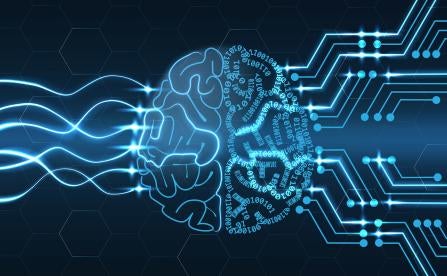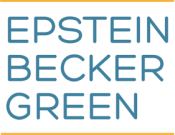On July 28, the Companies and Intellectual Property Commission of South Africa granted the world’s first patent on an invention created by an artificial intelligence (“AI”) inventor. This development marks an important milestone in what will certainly be a significant battle for legal recognition of such inventions in the United States and other countries.
“Device for Autonomous Bootstrapping of Unified Sentience” aka “DABUS” is an AI developed by Missouri physicist Stephen Thaler. The recently-issued patent is directed to a food container based on fractal geometry. The patent application was filed on September 17, 2019 under the Patent Cooperation Treaty. [1] Under the heading of “inventor”, the application identifies DABUS and states “The invention was autonomously generated by an artificial intelligence." [2]
It is important to note that patent applications in South Africa are not subject to a formalized patent-examination procedure of the kind found in the U.S., Canada, Europe, and many other jurisdictions. Indeed, this aspect of the South African patent system appears to have been a motivating factor for Thaler to seek patent protection in the country. Thus, it should not be surprising that this patent was granted and the ultimate legal significance of this grant may be yet to be seen. With that said, Thaler and his legal team have attempted – so far in vain – to have AI-invented technologies recognized in other countries including the United States.
In Europe, the Board of Appeal (“BOA”) of the European Patent Office (“EPO”) handed down a pair of preliminary communications stating that an inventor on a patent application must have “legal capacity”. The BOA’s communications were responsive to appeals of the EPO’s rejection of the DABUS patent applications. An oral hearing before the BOA is scheduled for December 2021.
In the United States, Thaler filed U.S. Patent Application Nos. 16/524,350 and 16/524,532 on July 29, 2019. [3] Along with the patent applications, an Application Data Sheet (“ADS”) was filed in each case identifying a single inventor with the given name “DABUS” and a family name “Invention generated by artificial intelligence”. [4] The ADSs also identify Stephen Thaler as the Applicant and Assignee. In both cases, the United States Patent and Trademark Office (“USPTO”) responded by issuing a Notice to File Missing Parts of Nonprovisional Patent Application (“the Notice”) and asserted that the ADS did not identify each inventor by his legal name. [5] A subsequent petition to request supervisory review of the Notice and vacate the Notice was then filed by Thaler and dismissed by the USPTO. [6] Thaler then appealed to the U.S. District Court for the Eastern District of Virginia seeking, among other things, a reversal of the USPTO’s decision on the petition.
In his complaint to the district court, Thaler argues that no natural person meets the criteria for inventorship under the current statutory and regulatory scheme. [7] Thus, if no corrective action is taken, Thaler asserts that future AI-generated patents would enter the public domain once disclosed. [8] Additionally, Thaler argues that allowing patents on AI-generated inventions would be consistent with the Constitution and the Patent Act, will incentivize the further development of inventive machines, and that failure to do so allows individuals to take credit for work that they have not done. [9] Finally, Thaler argues that the notion of “conception” does not necessarily exclude artificial inventors. [10] Thaler seeks an order compelling the USPTO to reinstate the DABUS U.S. patent applications, a declaration that a patent application should not be rejected on the grounds that no natural person is identified as an inventor, and a declaration that a patent application should properly identify an AI in cases where the AI has met the inventorship criteria. [11]
Oral arguments were heard in the spring of 2021 and, so far, no order has been issued. The outcome of this case will not only impact the DABUS U.S. patent applications, but could also have drastic implications for other areas of patent law such as our understanding of conception and obviousness.
[1] Patent Application No. PCT/IB2019/057809 (filed Sept. 17, 2019).
[2] Id. at [72].
[3] Complaint for Declaratory and Injunctive Relief at 3, Stephen Thaler v. Iancu, No. 1:20-cv-00903 (E.D. Va. Aug. 6, 2020).
[4] Id. at 4.
[5] Id. at 5.
[6] Id. at 5.
[7] Id. at 7.
[8] Id.
[9] Id. at 8-9.
[10] Id. at 12.
[11] Id. at 16-17.



 />i
/>i


